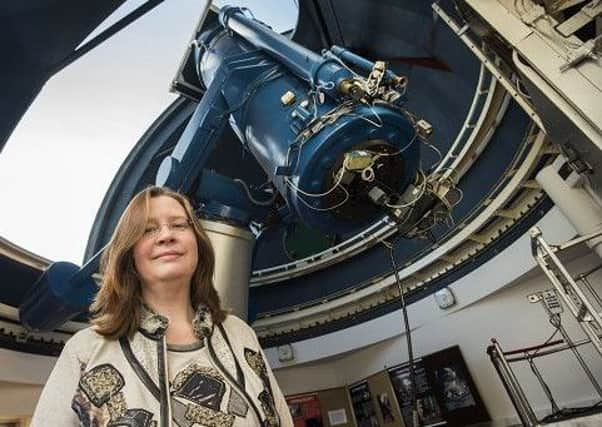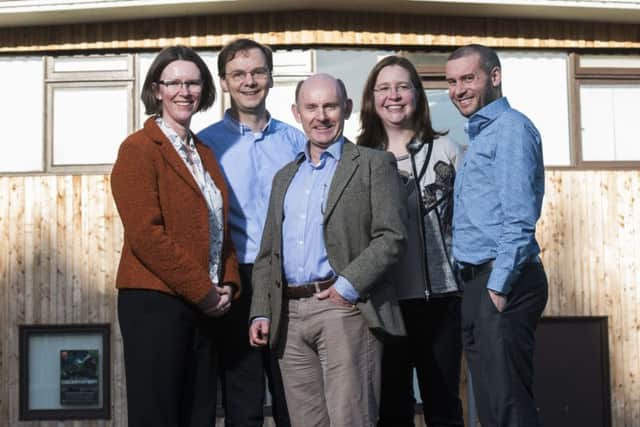Studying humanity through the lens of the universe at St Andrews


The Centre for Exoplanet Science was formally inaugurated on Monday, with speeches from principal professor Sally Mapstone and some of the professors and doctors involved.
Astronomers, philosophers and geologists at the university are working together with the aim of finding out how planets form in different galatic environments, how their atmospheres evolve and the relation between the evolutionary history of planets and the emergence of life.
Advertisement
Hide AdAdvertisement
Hide AdTheir work will also seek to examine the societal ramifications of such discoveries and understand the uniqueness of Earth in light of the recent discoveries of other planets.
Researchers at the university have been played a key role in the search for extrasolar planets, including the discovery of hot jupiters, measuring planet masses and the detection of the frozen planet OGLE-2005-BLG-390LB.
Dr Christiane Helling of the school of physics and astronomy, director of the new centre, said bringing together the various academic disciplines will put the centre in a better position to “understand physical processes and offer reflection on ourselves”.
He added: “Throughout history, prevailing human-centric world views have been challenged repeatedly.
Advertisement
Hide AdAdvertisement
Hide Ad“We now know of thousands of planets orbiting other stars, and still planet Earth appears to be unique. Understanding how unusual Earth is, may help humanity appreciate just how special it is.”


The centre will combine research from the School of Physics and Astronomy, the Department of Earth and Environmental Sciences and the Department of Philosophy.
The centre will allow also researchers to ask the deepest philosophical questions about the universe and understand the natural environment on Earth.
Professor of philosophy Katherine Hawley from the school of philosophical, anthropological and film studies spoke of her involvement in the centre.
Advertisement
Hide AdAdvertisement
Hide AdShe said: “For millenia, philosophers have been inspired by gazing at the starry heavens above. Searching for life on other planets poses ethical questions for us here on Earth.
“It gives us a lens through which to view the value of life on our planet and deepen public appreciation of the fundamental questions we ask about our existence in the universe.”